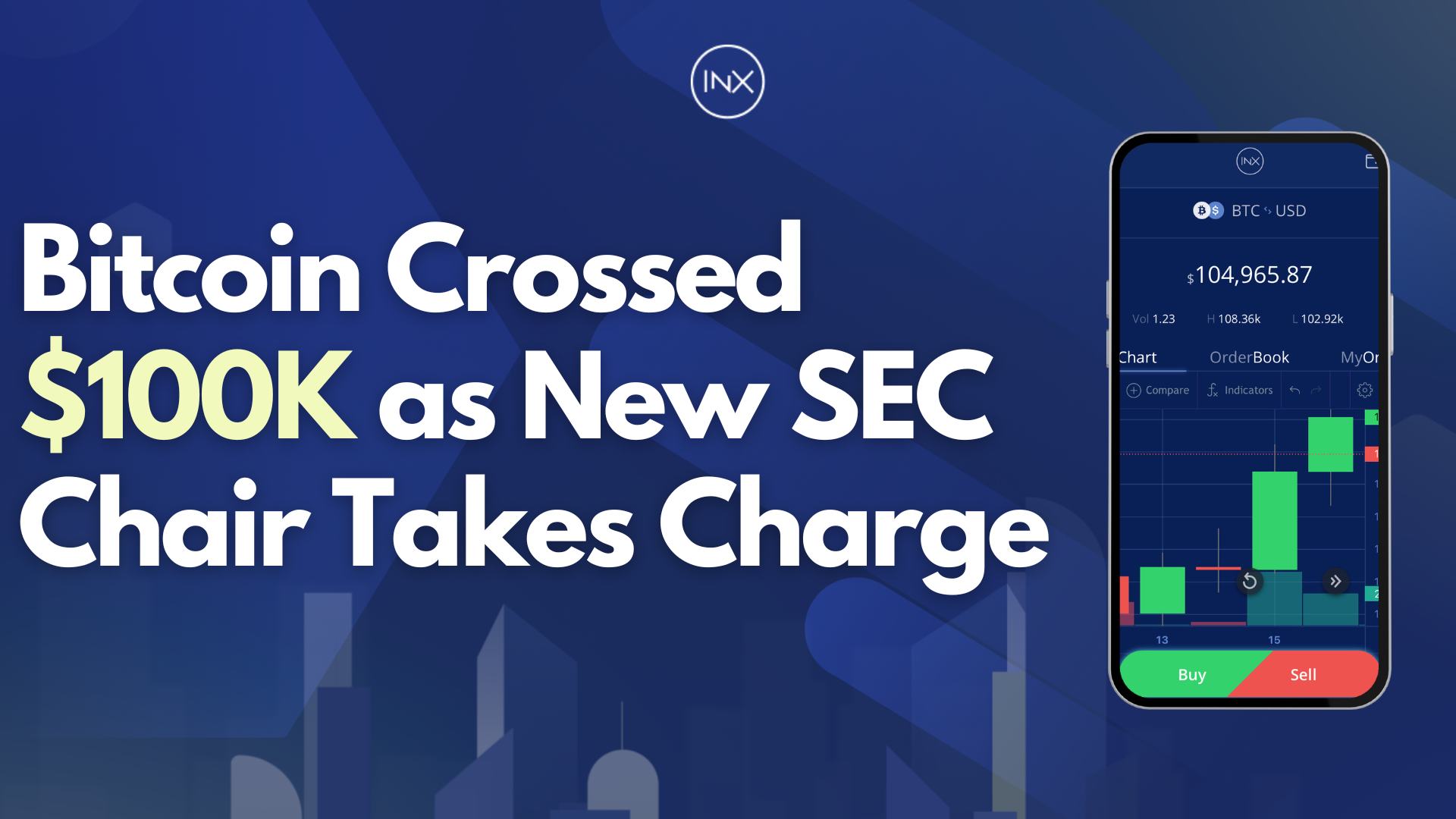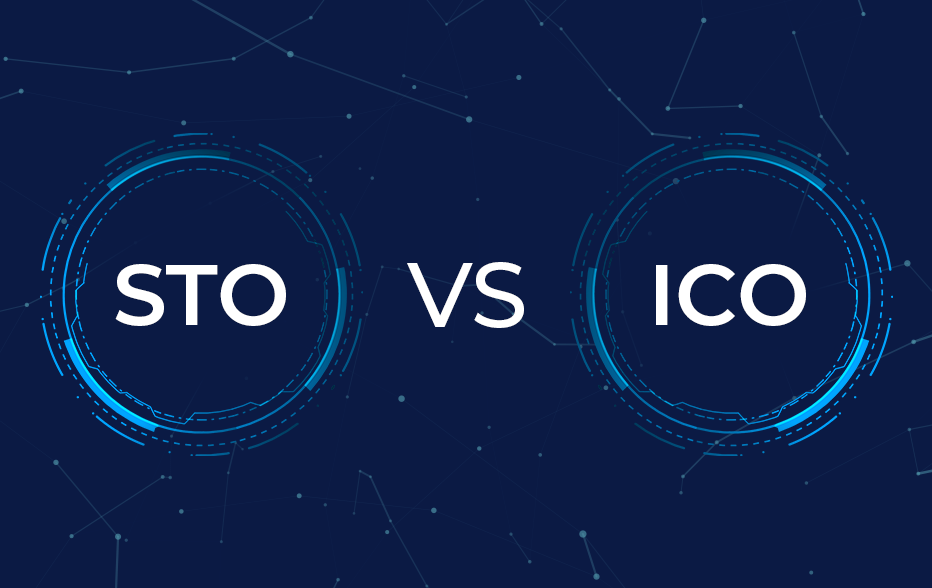MPC Meaning in Crypto: A Guide to Understanding MPC Wallets
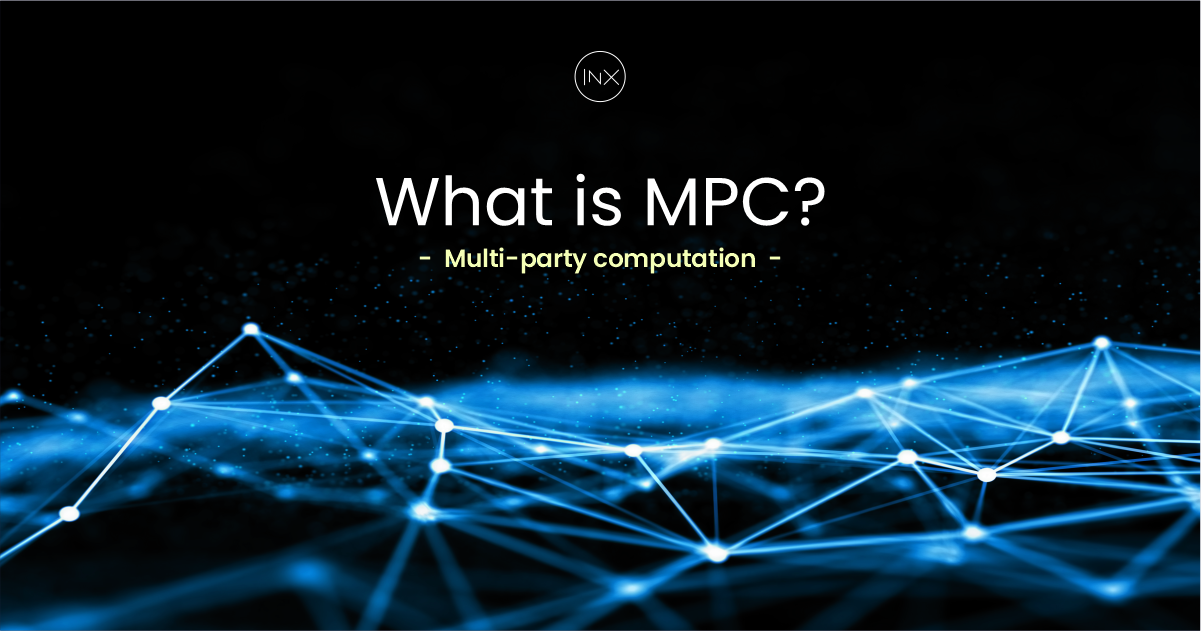
MPC (Multi-party computation) or SMPC (Secure multi-party computation) is an important cryptographic security measure in cryptocurrency. It is currently the safest cryptographic technique for wallet security and privacy on blockchains.
The MPC protocol is the technology behind MPC wallets that allows multi-users to work on data without revealing the protected data to each other. In this piece, we explore MPC meaning, MPC wallets, and how MPC works.
MPC meaning: What is MPC?
MPC (multi-party computation) is a subset of cryptography that creates a method for several people to jointly act on shared data (input) without revealing their own part of the data.
In cryptocurrency, MPC is often used to secure private keys, which are essential for accessing and transacting with crypto assets.
How Does MPC Work?
We can explain MPC with a simple analogy. Imagine three friends, Alice, Bob, and John, who want to find out who earns the highest salary without revealing to each other how much each of them makes.
Traditionally, they will each tell a mutual friend (a trusted party) how much they earn to determine the highest salary. But that defeats the purpose of privacy because another person has that information.

In this case, the MPC system can help the friends compute the highest salary without relying on external parties. They only have to design a protocol that can calculate the highest salary through messaging without actually sharing the numbers with themselves.
This problem is called “The Millionaire problem” in multi-party computation. In this case, Alice, Bob, and John design a protocol that allows them to compute the highest salary by inputting their salary in the protocol without being able to work out the other salaries.
A valid MPC protocol/system must always adhere to two properties:
- Privacy/Secrecy – MPC ensures that no participant learns more about the other participants’ inputs than what can be inferred from the computation result. In Alice, Bob, and John’s case, none of them can deduce anyone else’s salary from the result they get.
- Accuracy – MPC ensures that the computation output is correct, which matches what would have been obtained if one trusted party had performed the computation on all inputs. So, from our example above, the three friends will get the same number from the protocol that a trusted party would have given them.
MPC meaning in Crypto
MPC gained traction in cryptocurrency due to its ability to enhance security. This is because traditional methods of securing private keys, such as hot wallets (online) or cold wallets (offline), have limitations. Hot wallets can be vulnerable to hacking, while cold storage can be slow and inflexible.
MPC addresses these limitations by allowing for secure and fast access to funds while decentralizing the storage of private keys. By splitting the private key into shares and distributing them among multiple parties, MPC reduces the risk of a single point of compromise. This makes it more difficult for hackers to access the private key and steal the funds.
What are MPC Wallets
MPC wallets are cryptocurrency wallets that leverage MPC technology to allow multiple individuals to access and manage crypto assets on a blockchain. MPC system is a keyless system for securing your wallet.
So, instead of generating a private key, MPC generates a key separately for each individual without sharing any data. Therefore, each person gets a key, but none can access or view the entire key itself.
MPC wallets offer several advantages over traditional wallets. They eliminate the need to trust a single third party with the private key, reducing the risk of centralization or compromise. They also provide increased data privacy, as the private key is never formed in one place. Additionally, MPC wallets offer higher accuracy in computations and remove single points of failure.
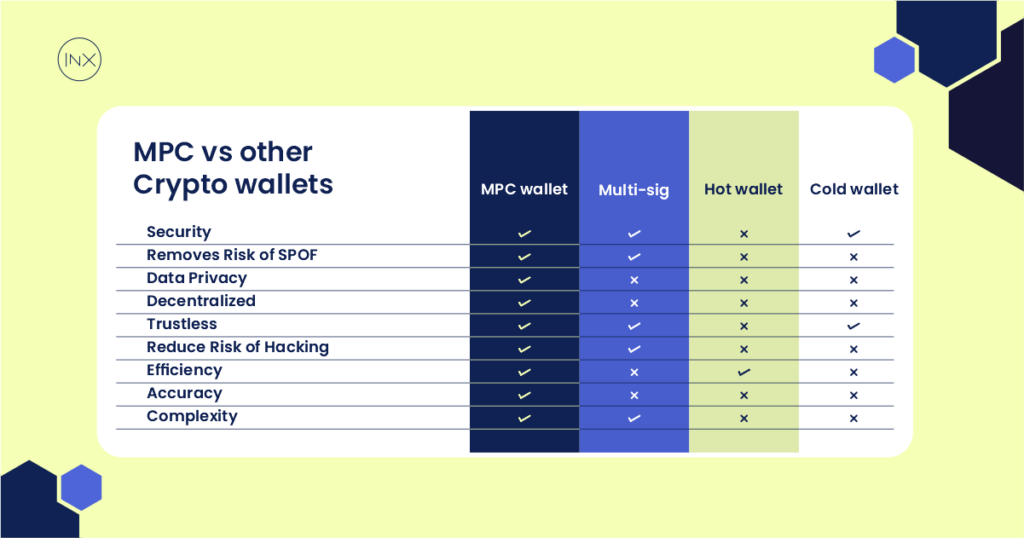
MPC wallets are ideal for wallets that require more than one party to handle transactions. Individuals can take advantage of MPC wallets by involving two parties (for example, their mobile phone and laptop).
MPC wallet vs. Multi-sig wallet
While MPC and multi-sig wallets involve multiple parties accessing a wallet, they are entirely different. Multi-sig wallets require multiple signatures for transaction approval, close to a board of directors’ approval process. Although they offer customizable security levels, they are complex to set up/use and incur higher transaction fees due to on-chain address generation.
On the other hand, MPC wallets use multi-party computation to secure transactions by dividing a private key into multiple encrypted shares distributed among various parties. This ensures no single user has complete control, providing high security. Transactions happen off-chain, so only one signature broadcast on-chain makes it cheaper and faster than multi-sig.
However, MPC wallets are more complex to create and use, and fewer providers are in the market. The bottom line is that MPC wallets are more secure, faster, and cheaper than multi-sig wallets but can be more complex to set up.
The choice between the two wallets should depend on your specific needs and preferences. Consider factors like the number of parties involved, required security level, and complexity of use.
The benefit of MPC wallets
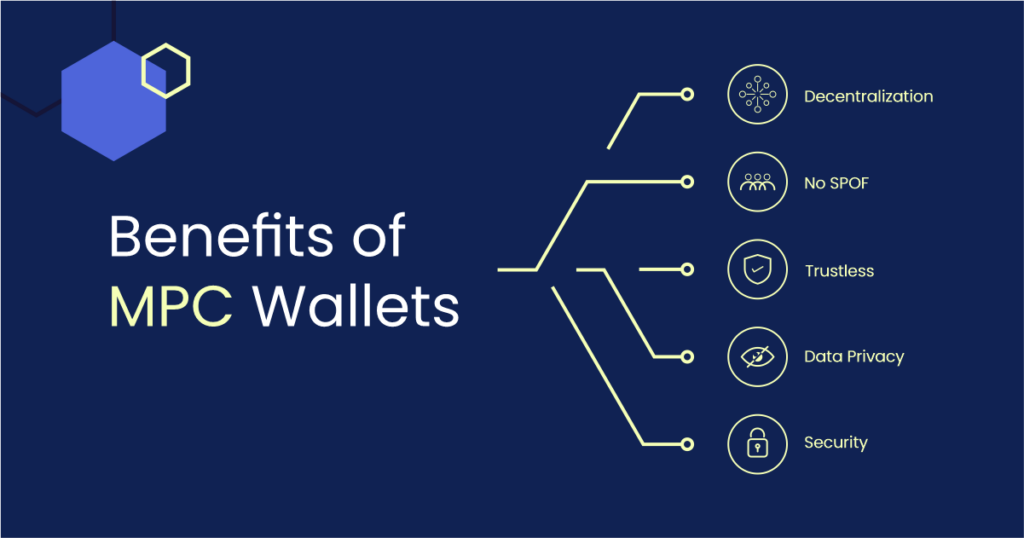
We established that MPC wallets are the most secure wallets at the moment. But apart from security, MPC wallets also offer additional benefits like:
- Decentralization: No single party has access to control the whole wallet
- Removes the risk of single point of failure (SPOF) – Since no single person holds the entire key, it makes it harder for the wallet to get compromised.
- Trustless: removes the role of a trusted party to handle transactions
- Data Privacy: MPC wallets offer additional data privacy because data is encrypted, so no private information is revealed.
Examples of MPC Wallets
Fireblocks: Fireblocks MPC wallets offer enterprise-grade security and features like insurance coverage for as high as $150 million per wallet. The MPC wallets supports over 1,100 tokens, 40 blockchains and integrates with major protocols and exchanges.
ZenGo: ZenGo is one of the leading MPC wallets with 3FA for added security and 3D biometric scanning. The wallet is compatible 70+ cryptocurrencies and offers biometric authentication with 24/7 live customer support.
Unbound Finance: Unbound Finance offers an MPC wallet that uses secure multi-party computation to manage private keys and allow users to access various DeFi platforms while maintaining control over their assets.
Curv: Curv is a cloud-based institutional wallet service that uses MPC technology to secure digital assets. Their solution enables enterprises and institutions to manage their crypto assets securely and efficiently without the need for hardware or physical keys.
OKX: OKX is one of the largest cryptocurrency exchanges in the world and it recently launched its MPC wallet. The wallet supports over 50 blockchain networks with email and facial recognition for recovery.
Conclusion
This piece extensively covered MPC meaning, how they work, and MPC wallets. The bottom line is that MPC is a vital tool in cryptocurrency because it addresses private keys’ privacy.
But MPC wallets have their downsides. First, they can be more technical, making them more complex to set up and harder to understand. Secondly, there is an increase in communication and computational costs (high communication costs and computation overhead).
However, as the cryptocurrency industry continues to evolve, the adoption of MPC and MPC wallets will likely increase. With ongoing advancements in MPC protocols and increased awareness of its advantages, the future of MPC in the cryptocurrency space looks promising.
The INX Digital Company INC August 8, 2023
The INX Digital Company inc. is an expert in the field of finance, crypto and digital securities.

